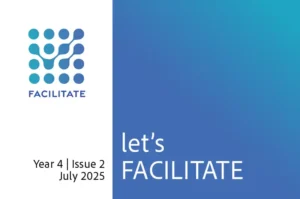FACILITATE workshop on its developing ethical frameworks
On 15 and 16 March, the leaders of work package 3 (WP3) held a meeting with partners at Eurac Research, Bolzano (Italy). The meeting was convened to discuss key elements of the ethical frameworks (the ethical framework on return of clinical trial data and the ethical framework on the secondary use of clinical trial data in scientific research), and in particular to reach agreement on the components critical to implementing ethical processes on the return of clinical trial data to patients and the secondary use of clinical trial data.
In advance of the meeting, all partners submitted detailed feedback on the current draft ethical frameworks. This feedback was analyzed by WP3 leaders and formed the basis of the discussions at the meeting.
The meeting opened with Prof Johanna Blom reminding all partners present about the aims and objectives of FACILITATE and the importance of a participant-centric approach to achieving our aims. This was followed by Dr Deborah Mascalzoni providing a background to the legal and ethical policies and guidelines, the empirical work, the literature as well as previous projects and consortium that have informed and influenced FACILITATE’s developing ethical frameworks. At this stage, all participants then individually spoke about what they considered to be an essential component that must be included in the developing ethical frameworks.
Over the 2 days, partners agreed on certain key points. It was agreed that transparent and accountable processes that detail roles and responsibilities of key individuals in the decision-making process but also provide clear, transparent, and ongoing information to participants are essential. Partners agreed that informed consent is a process and that study participants should be approached as early as possible in the clinical trial to discuss the use of their clinical trial data for secondary research. This consent should be followed up again before the end of the clinical trial. As part of this consent process, it was agreed that study participants should be afforded with the opportunity to opt-out of any research projects. To ensure transparency, it was agreed that study participants should be notified of the use of their clinical trial data in research. Finally, it was agreed that notification, opt-out and changes to consent preferences should be managed through a participant information and decision platform.
Following these 2 days of rich and engaged discussion, WP3 is revising the ethical frameworks before starting its next stage of engagement.



